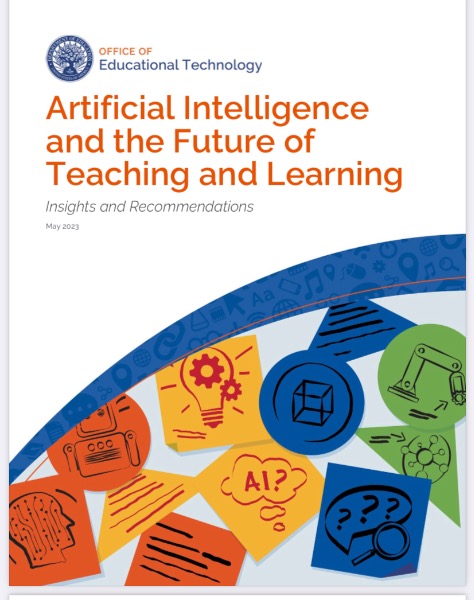The Futures of Distance Education

Embedded below is a video of Bryan Alexander's virtual keynote at the DEC 2024 conference. Bryan is a futurist, researcher, writer, speaker, consultant, and teacher, working in the field of higher education’s future. The event was held at New Jersey's Mercer County Community College (and online).
Though AI was not the theme of the conference, it came up in every session I attended. If you are looking for additional professional development opportunities discussing AI, the Instructional Technology Council is holding a virtual spring summit on Friday, April 12th. It will feature presentations and discussion panels examining the benefits and challenges of AI at community colleges across the country.
Bryan Alexander speaks widely and publishes frequently, with articles appearing in venues including The Atlantic Monthly, Inside Higher Ed. He has been interviewed by and featured in the New York Times, the Washington Post, MSNBC, the Wall Street Journal, US News and World Report, National Public Radio (2017, 2020, 2020, 2020, 2020), the Chronicle of Higher Education (2016, 2020), the Atlantic Monthly, Reuters, Times Higher Education, the National Association of College and University Business Officers, Pew Research, Campus Technology, The Hustle, Minnesota Public Radio, USA Today, and the Connected Learning Alliance. He recently published Academia Next: The Futures of Higher Education for Johns Hopkins University Press (January 2020), which won an Association of Professional Futurists award. He next book, Universities on Fire: Higher Education in the Age of Climate Crisis, is forthcoming from Johns Hopkins. His two other recent books are Gearing Up For Learning Beyond K-12 and The New Digital Storytelling (second edition). Bryan is currently a senior scholar at Georgetown University and teaches graduate seminars in their Learning, Design, and Technology program.

 The
The 